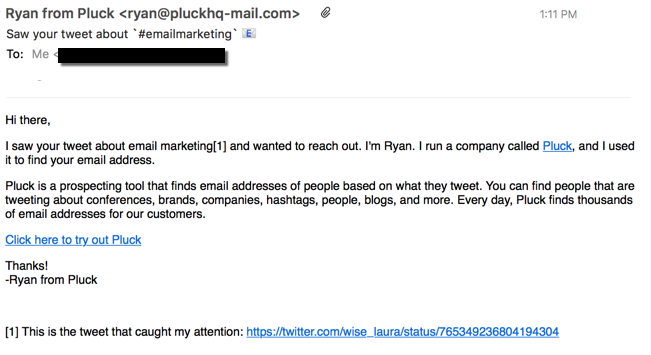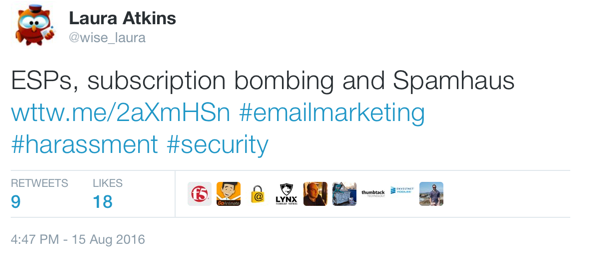FTC solicits CAN-SPAM feedback
- steve
- June 22, 2017
- Industry , Legal
The FTC (US Federal Trade Commission) is soliciting comments on CAN-SPAM legislation:
A. General Issues
1. Is there a continuing need for the Rule? Why or why not?
2. What benefits has the Rule provided to consumers? What evidence supports the asserted benefits?
3. What modifications, if any, should be made to the Rule to increase its benefits to consumers?
(a) What evidence supports the proposed modifications?
(b) How would these modifications affect the costs the Rule imposes on businesses, including small businesses?
(c) How would these modifications affect the benefits to consumers?
4. What impact has the Rule had on the flow of truthful information to consumers and on the flow of deceptive information to consumers?
5. What significant costs, if any, has the Rule imposed on consumers? What evidence supports the asserted costs?
6. What modifications, if any, should be made to the Rule to reduce any costs imposed on consumers?
(a) What evidence supports the proposed modifications?
(b) How would these modifications affect the benefits provided by the Rule?
7. What benefits, if any, has the Rule provided to businesses, including small businesses? What evidence supports the asserted benefits?
8. What modifications, if any, should be made to the Rule to increase its benefits to businesses, including small businesses?
(a) What evidence supports the proposed modifications?
(b) How would these modifications affect the costs the Rule imposes on businesses, including small businesses?
(c) How would these modifications affect the benefits to consumers?
9. What significant costs, if any, including costs of compliance, has the Rule imposed on businesses, including small businesses? What evidence supports the asserted costs?
10. What modifications, if any, should be made to the Rule to reduce the costs imposed on businesses, including small businesses?
(a) What evidence supports the proposed modifications?
(b) How would these modifications affect the benefits provided by the Rule?
11. What evidence is available concerning the degree of industry compliance with the Rule?
12. What modifications, if any, should be made to the Rule to account for changes in relevant technology or economic conditions? What evidence supports the proposed modifications?
13. Does the Rule overlap or conflict with other federal, state, or local laws or regulations? If so, how?
(a) What evidence supports the asserted conflicts?
(b) With reference to the asserted conflicts, should the Rule be modified? If so, why, and how? If not, why not?
B. Specific Issues
1. Should the Commission modify the Rule to expand or contract the categories of messages that are treated as transactional or relationship messages?
(a) Why or why not?
(b) What evidence supports such a modification?
(c) How would this modification affect the costs the Rule imposes on businesses, including small businesses?
(d) How would this modification affect the benefits to consumers?
2. As discussed above, the Rule tracks the CAN-SPAM Act in prohibiting the sending of commercial email to a recipient more than ten business days after the recipient opts out. Should the Commission modify the Rule to reduce the time-period for processing opt-out requests to less than ten business days?
(a) Why or why not?
(b) What evidence supports such a modification?
(c) How would this modification affect the costs the Rule imposes on businesses, including small businesses?
(d) How would this modification affect the benefits to consumers?
3. Should the Commission modify the Rule to specify additional activities or practices that constitute aggravated violations?
(a) Why or why not?
(b) What evidence supports such a modification?
(c) How would this modification affect the costs the Rule imposes on businesses, including small businesses?
(d) How would this modification affect the benefits to consumers?
The press release and the entire notice are available on the FTC website.
Comments can be submitted by post or online at https://ftcpublic.commentworks.com/ftc/canspamrulereview/. Comments will be made public at https://www.ftc.gov/policy/public-comments.
Wherever you are in the email ecosystem any changes are going to affect you. Think about providing comment, especially if you can back it up with data or experience.

